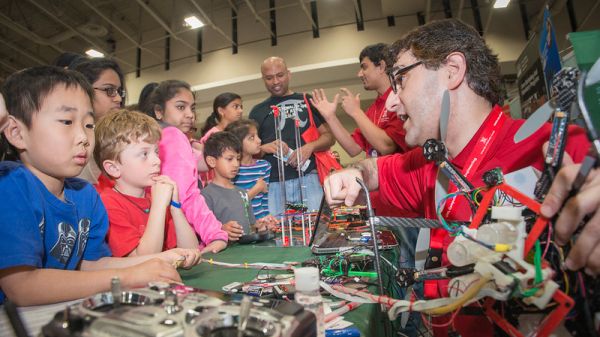Environmental Education Research Bulletin Issue 5

The following summaries can be found in Environmental Education Research Bulletin (EERB) Issue 5:
Behavior
- Toth et al. (2013): Explores teen attitudes towards energy consumption.
- Skamp et al. (2013): Examines beliefs and willingness to act about global warming.
- Damerell et al. (2013): Shows how child-oriented environmental education influences adult knowledge and behavior.
- Karaarslan et al. (2013): Uses self-determination theory to support psychological needs of preservice science teachers.
- Kopnina (2013): Studies Dutch children's attitudes toward consumption and its implications for environmental education.
Evaluation
- DeWaters and Powers (2013): Establishes measurement criteria for an energy literacy questionnaire.
Sense of Place
- Beery (2013): Investigates the relationship between outdoor recreation, age, and environmental connectedness.
- Liefländer et al. (2013): Explores how environmental education promotes connectedness with nature.
- Hill (2013): Examines the intersection between sustainability education and outdoor learning.
- Jagger (2013): Explores community mapping as a way to enhance knowing nature.
- Kulnieks et al. (2014): Develops an eco-literacy framework for Indigenous and environmental educational leadership.
Teaching Methods
- Baker et al. (2013): Uses art elicitation to deliver and evaluate climate change instructional modules.
- Öhman and Öhman (2013): Analyzes student discussions about climate change using a participatory approach.
- Niebert and Gropengiesser (2013): Explores the use of metaphors in understanding and communicating climate change.
- Kozak and McCreight (2013): Demonstrates enrichment through gardening in elementary school.
- Jordan et al. (2013): Uses an aquarium to teach systems thinking and reasoning about complex systems.
- Esson and Moss (2013): Assesses the risk of delivering disturbing messages to zoo family audiences.
- Crosley (2014): Advances urban environmental education through the food justice movement.
- Arreguín-Anderson and Kennedy (2013): Discusses deliberate language planning in environmental education.
Professional Development
- Monroe et al. (2013): Advocates for the role of environmental education in climate change for secondary science educators.
- Peffer et al. (2013): Explores the use of technology by nonformal environmental educators.
Other Research
- Kronlid and Öhman (2013): Develops an environmental ethical conceptual framework for research on sustainability and environmental education.
- Jaskulsky and Besel (2013): Investigates the impact of different names for global warming in environmental discourse.
- McEntee and Mortimer (2013): Critically reviews public campaigns addressing contentious environmental issues.
- Cagle (2013): Quantifies the presence of written materials and the use of outside texts in nature centers for environmental education.
- Boileau (2014): Discusses challenges and opportunities in early childhood environmental education research.
- Wilks and Rudner (2013): Explores involving youth in urban planning for environmental education.






